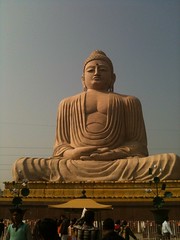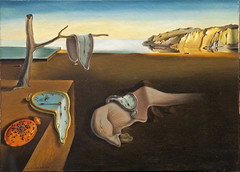| 11556422991 | absolutism | the political doctrine and practice of unlimited, centralized authority and absolute sovereignty, as vested especially in a monarch or dictator |  | 0 |
| 11556422992 | agricultural | the science or practice of farming, including cultivation of the soil for the growing of crops and the rearing of animals to provide food, wool, and other products |  | 1 |
| 11556422993 | anti-semitism | the prejudice against or hatred of Jews |  | 2 |
| 11556422994 | belief systems | a set of mutually supportive beliefs; the beliefs of any such system can be classified as religious, philosophical, or ideological. |  | 3 |
| 11556422995 | buddhism | a religion of eastern and central Asia growing out of the teaching of Gautama Buddha that suffering is inherent in life and that one can be liberated from it by mental and moral self purification |  | 4 |
| 11556422996 | bureaucracy | a system of government in which most of the important decisions are made by state officials rather than by elected representatives |  | 5 |
| 11556422997 | calvinism | a major branch of Protestantism that follows the theological tradition and forms of Christian practice of John Calvin and other Reformation-era theologians; the Five Points of Calvinism, otherwise known by the acronym TULIP summarize the teachings of the Calvinist faith |  | 6 |
| 11556422998 | capitalism | an economic and political system in which a country's trade and industry are controlled by private owners for profit, rather than by the state. |  | 7 |
| 11556422999 | civilization | the process by which a society or place reaches an advanced stage of social development and organization |  | 8 |
| 11556423000 | colonization | an ongoing process of by which a central system of power dominates the surrounding land and its components (people) |  | 9 |
| 11556423001 | commerce | the activity of buying and selling, especially on a large scale |  | 10 |
| 11556423002 | communism | a way of organizing a society in which the government owns the things that are used to make and transport products (such as land, oil, factories, ships, etc.) and there is no privately owned property |  | 11 |
| 11556423003 | confucianism | A philosophy that adheres to the teachings of the Chinese philosopher Confucius. It shows the way to ensure a stable government and an orderly society in the present world and stresses a moral code of conduct. |  | 12 |
| 11556423004 | creationism | the belief that God created all things out of nothing as described in the Bible and that therefore the theory of evolution is incorrect |  | 13 |
| 11556423005 | cubism | a style of painting and sculpture developed in the early 20th century, characterized chiefly by an emphasis on formal structure, the reduction of natural forms to their geometrical equivalents, and the organization of the planes of a represented object independently of representational requirements |  | 14 |
| 11556423006 | dadaism | a post-World War 1 cultural movement in visual art as well as literature (mainly poetry), theatre, and graphic design |  | 15 |
| 11556423007 | daoism | a spiritual, philosophical, and religious tradition of Chinese origin that emphasizes living in harmony with the Dao; Dao means "way", "path", or "principle". |  | 16 |
| 11556423008 | darwinism | the theory of the evolution of species by natural selection advanced by Charles Darwin |  | 17 |
| 11556423009 | decolonization | the act of getting rid of colonization, or freeing a country from being dependent on another country |  | 18 |
| 11556423010 | deism | the belief in the existence of a supreme being, specifically of a creator who does not intervene in the universe; the term is used chiefly of an intellectual movement of the 17th and 18th centuries that accepted the existence of a creator on the basis of reason but rejected belief in a supernatural deity who interacts with humankind |  | 19 |
| 11556423011 | demographic | relating to the structure of populations; a particular sector of a population |  | 20 |
| 11556423012 | diffusion | a social process through which cultural knowledge, practices, and materials spread from one social system to another |  | 21 |
| 11556423013 | egalitarianism | a trend of thought that favors equality for all people; Egalitarian docrines maintain that all humans are equal in fundamental worth or social status |  | 22 |
| 11556423014 | empire | an extensive group of states or countries under a single supreme authority, formerly especially an emperor or empress |  | 23 |
| 11556423015 | environmental | relating to the natural world and the impact of human activity on its condition |  | 24 |
| 11556423016 | environmentalism | a broad philosophy, ideology, and social movement regarding concerns for environmental protection and improvement of the health of the environment, particularly as the measure for this health seeks to incorporate the concerns of non-human elements |  | 25 |
| 11556423017 | existentialism | a philosophical theory or approach that emphasizes the existence of the individual person as a free and responsible agent determining their own development through acts of the will |  | 26 |
| 11556423018 | fascism | a way of organizing a society in which a government ruled by a dictator controls the lives of the people and in which people are not allowed to disagree with the government |  | 27 |
| 11556423019 | feminism | the advocacy of women's rights on the grounds of political, social, and economic equality to men |  | 28 |
| 11556423020 | feudalism | the dominant social system in medieval Europe, in which the nobility held lands from the Crown in exchange for military service, and vassals were in turn tenants of the nobles, while the peasants (villeins or serfs) were obliged to live on their lord's land and give him homage, labor, and a share of the produce, notionally in exchange for military protection |  | 29 |
| 11556423021 | fundamentalism | a form of a religion, especially Islam or Protestant Christianity, that upholds beliefs in the strict, literal interpretation of scripture |  | 30 |
| 11556423022 | gender roles | a set of societal norms dictating the types of behaviors which are generally considered acceptable, appropriate, or desirable for people based on their actual or perceived sex or sexuality |  | 31 |
| 11556423023 | globalization | a process of interaction and integration among the people, companies, and governments of different nations, a process driven by international trade and investment and aided by information technology |  | 32 |
| 11556423024 | hierarchy | a system or organization in which people or groups are ranked one above the other according to status or authority |  | 33 |
| 11556423025 | hinduism | the religion of the majority of people in India and Nepal; it has no single founder, no single scripture, and no commonly agreed set of teachings |  | 34 |
| 11556423026 | humanism | an outlook or system of thought attaching prime importance to human rather than divine or supernatural matters; humanist beliefs stress the potential value and goodness of human beings, emphasize common human needs, and seek solely rational ways of solving human problems |  | 35 |
| 11556423027 | ideology | a system of ideas and ideals, especially one that forms the basis of economic or political theory and policy |  | 36 |
| 11556423028 | imperialism | a policy of extending a country's power and influence through diplomacy or military force |  | 37 |
| 11556423029 | impressionism | a 19th century art movement that originated with a group of Paris-based artists whose independent exhibitions brought them to prominence during the 1870s and 1880s |  | 38 |
| 11556423030 | interaction | a kind of action that occurs as two or more objects have an effect upon one another |  | 39 |
| 11556423031 | isolationism | a policy of remaining apart from the affairs or interests of other groups, especially the political affairs of other countries |  | 40 |
| 11556423032 | judaism | the first and oldest of the three great monotheistic faiths, is the religion and way of life of the Jewish people; the basic laws and tenets of Judaism are derived from the Torah, the first five books of the Bible |  | 41 |
| 11556423033 | labor systems | a plan or system for utilizing convict labor often authorized by law |  | 42 |
| 11556423034 | legalism | a philosophical belief that human beings are more inclined to do wrong than right because they are motivated entirely by self-interest |  | 43 |
| 11556423035 | manicheism | a dualistic religious system with Christian, Gnostic, and pagan elements, founded in Persia in the 3rd century by Manes; this system was based on a supposed primeval conflict between light and darkness; it spread widely in the Roman Empire and in Asia, and survived in eastern Turkestan (Xinjiang) until the 13th century |  | 44 |
| 11556423036 | maritime/maritime trade | connected with the sea, especially in relation to seafaring commercial or military activity |  | 45 |
| 11556423037 | marxism | a method of socioeconomic analysis, that analyzes class relations and societal conflict using a materialist interpretation of historical development and a dialectical view of social transformation; it originates from the mid-to-late 19th century works of German philosophers Karl Marx and Friedrich Engels |  | 46 |
| 11556423038 | materialism | the doctrine that nothing exists except matter and its movements and modifications |  | 47 |
| 11556423039 | mercantilism | the economic theory that trade generates wealth and is stimulated by the accumulation of profitable balances, which a government should encourage by means of protectionism |  | 48 |
| 11556423040 | militarism | the belief or desire of a government or people that a country should maintain a strong military capability and be prepared to use it aggressively to defend or promote national interests |  | 49 |
| 11556423041 | modernism | a style of art, architecture, literature, etc., that uses ideas and methods which are very different from those used in the past |  | 50 |
| 11556423042 | monotheism | the doctrine or belief that there is only one God |  | 51 |
| 11556423043 | nation-building | efforts of newly independent nations to redefine the populace of territories that had been carved out by colonial powers or empires without regard to ethnic, religious, or other boundaries; process of constructing or structuring a national identity using the power of the state |  | 52 |
| 11556423044 | nation-state | a sovereign state whose citizens or subjects are relatively homogeneous in factors such as language or common descent |  | 53 |
| 11556423045 | nationalism | a feeling that people have of being loyal to and proud of their country often with the belief that it is better and more important than other countries |  | 54 |
| 11556423046 | neo-confucianism | a movement in religious philosophy derived from Confucianism in China around AD 1000 in response to the ideas of Taoism and Buddhism |  | 55 |
| 11556423047 | pacifism | the belief that any violence, including war, is unjustifiable under any circumstances, and that all disputes should be settled by peaceful means |  | 56 |
| 11556423048 | pandemic | a disease prevalent over a whole country or the world |  | 57 |
| 11556423049 | pantheism | a doctrine that identifies God with the universe, or regards the universe as a manifestation of God |  | 58 |
| 11556423050 | polytheism | the belief in or worship of more than one god |  | 59 |
| 11556423051 | racism | the belief that all members of each race possess characteristics or abilities specific to that race, especially as to distinguish it as inferior or superior to another race or races |  | 60 |
| 11556423052 | realism | the doctrine that universals or abstract concepts have an objective or absolute existence; the theory that universals have their own reality is sometimes called Platonic realism because it was first outlined by Plato's doctrine of "forms" or ideas; in art, the accurate, detailed, unembellished depiction of nature or of contemporary life |  | 61 |
| 11556423053 | reform | the action or process of reforming an institution or practice |  | 62 |
| 11556423054 | revolution | a forcible overthrow of a government or social order in favor of a new system |  | 63 |
| 11556423055 | romanticism | an artistic, literary, musical and intellectual movement that originated in Europe toward the end of the 18th century and in most areas was at its peak in the approximate period from 1800-1850; characterized by an appreciation of the beauties of nature, a general exaltation of emotion over reason and of the senses over intellect, a turning in upon the self and a heightened examination of human personality and its moods and mental potentialities |  | 64 |
| 11556423056 | schism | in Christianity, a break in the unity of the church; a split or division between strongly opposed sections or parties, caused by differences in opinion or belief |  | 65 |
| 11556423057 | scholasticism | the system of theology and philosophy taught in medieval European universities, based on Aristotelian logic and the writings of the early Church Fathers and having a strong emphasis on tradition and dogma; an unprecedented process of learning, literally a vast "scholastic" enterprise |  | 66 |
| 11556423058 | skepticism | the theory that certain knowledge is impossible |  | 67 |
| 11556423059 | social darwinism | the theory that individuals, groups, and peoples are subject to the same Darwinian laws of natural selection as plants and animals; now largely discredited, social Darwinism was advocated by Herbert Spencer and others in the late 19th and early 20th centuries and was used to justify political conservatism, imperialism, and racism and to discourage intervention and reform |  | 68 |
| 11556423060 | social revolution | a bottom-up, as opposed to a vanguard party-led or purely political revolution aiming to reorganize all of society; a massive change in society; an upheaval in which existing property relations are smashed |  | 69 |
| 11556423061 | socialism | a political and economic theory of social organization that advocated that the means of production, distribution, and exchange should be owned or regulated by the community as a whole; individuals do not live or work in isolation but live in cooperation with one another |  | 70 |
| 11556423062 | surrealism | a 20th century avant-garde movement in art and literature that sought to release the creative potential of the unconscious mind, for example by the irrational juxtaposition of images; the movement represented a reaction against what its members saw as the destruction wrought by the "rationalism" that had guided European culture and politics in the past and that had culminated in the horrors of World War 1 |  | 71 |
| 11556423063 | terrorism | the use of violence and intimidation in the pursuit of political aims |  | 72 |
| 11556423064 | totalitarianism | a political system where the state recognizes no limits to its authority and strives to regulate every aspect of public an private life whenever feasible; the totalitarian state pursues some special goal, such as industrialization or conquest, to the exclusion of all others; all resources are directed toward its attainment regardless of the cost |  | 73 |
| 11556423065 | trade network | a network of roads, railroads, harbors, and airports that connect all of your cities together to share luxuries |  | 74 |
| 11556423066 | utilitarianism | a doctrine that the useful is the good and that the determining consideration of right conduct should be the usefulness of its consequences; specifically: a theory that the aim of action should be the largest possible balance of pleasure over pain or the greatest happiness of the greatest number |  | 75 |
AP World History Book of Isms and Ideas Flashcards
Primary tabs
Need Help?
We hope your visit has been a productive one. If you're having any problems, or would like to give some feedback, we'd love to hear from you.
For general help, questions, and suggestions, try our dedicated support forums.
If you need to contact the Course-Notes.Org web experience team, please use our contact form.
Need Notes?
While we strive to provide the most comprehensive notes for as many high school textbooks as possible, there are certainly going to be some that we miss. Drop us a note and let us know which textbooks you need. Be sure to include which edition of the textbook you are using! If we see enough demand, we'll do whatever we can to get those notes up on the site for you!

